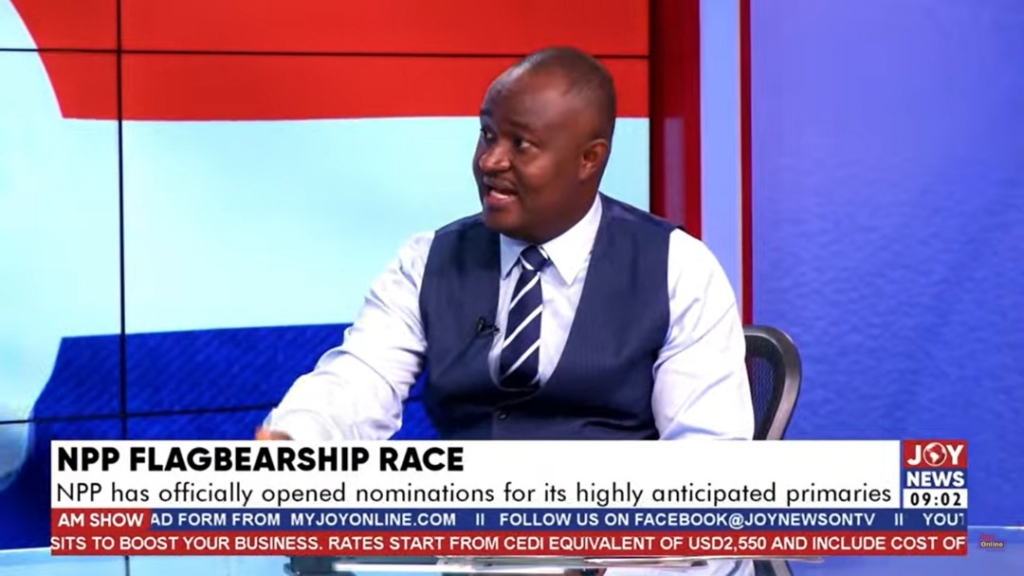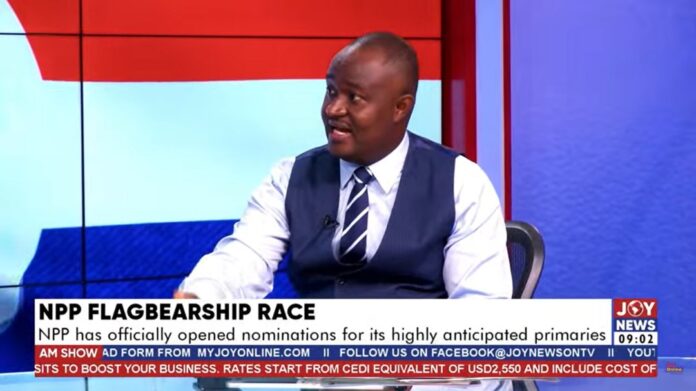
Like the infamous amendment to the laws in George Orwell’s Animal Farm that eventually read, “All animals are equal, but some are more equal than others”, the New Patriotic Party’s (NPP) National Executive Committee (NEC) directive cautioning aspirants in the flagbearer race not to campaign until after the Akwatia by-election was clearly never intended to be applied evenly.
For anyone familiar with the NPP’s recent political climate, this selective enforcement comes as no surprise.
Political campaigning, at its core, is about winning power in order to serve the people. But when the nation is in mourning, politicians and politically exposed persons have a moral obligation to reflect the country’s mood and conduct themselves with sensitivity.
Sadly, this principle appears lost on certain camps, whose leaders have been busy campaigning in the Ashanti Region while their main rival stood with the grieving in Accra.
To compound matters, these same factions are urging delegates to embrace the idea of granting their candidate a second chance – invoking the precedents of former Presidents John Agyekum Kufuor and Nana Akufo-Addo.
In the NPP, however, a second bid for the presidency has never been an entitlement. It is not a consolation prize for turning up; it is earned through demonstrable performance in a previous general election.
Every NPP candidate who has enjoyed a second attempt first showed they could grow the party’s vote share and inspire confidence in victory. When performance fell short, the party has historically entrusted delegates to chart a new course.
Consider the record. In 1992, Professor Albert Adu Boahen led the NPP into its first presidential race in the Fourth Republic against the towering figure of Jerry John Rawlings, who was transitioning Ghana from military to civilian rule.
Despite the hostile and repressive political environment, Adu Boahen secured over 1.2 million votes (30.29%), trailing Rawlings’ 58.4% by a gap of 1.1 million – a far better result than the NPP’s humiliating 2024 defeat.
In 1996, J.A. Kufuor took up the challenge against the same Rawlings. With a more organised party and a relatively short campaign period, Kufuor improved the NPP’s tally to 2.83 million votes (39.67%). Rawlings won with 57.37%, a gap of 1.26 million – still narrower than the 1.7 million-vote chasm seen in 2024.
By 2008, Nana Akufo-Addo, in his first attempt, delivered an outright first-round lead – the first in NPP history – polling 4.15 million votes (49.13%) to John Atta Mills’ 4.05 million (47.92%), a lead of 102,805 votes.
Then came 2024. Dr Mahamudu Bawumia, after over 16 years of public political visibility, managed only 4.65 million votes (41.61%), trailing John Mahama’s 6.32 million (56.55%) by a record 1.67 million – the worst defeat in the Fourth Republic and the first time an NPP flagbearer performed worse than their immediate predecessor’s debut.
The data is stark. Adu Boahen’s baseline of 30.29% in 1992 was followed by Kufuor’s 39.67% in 1996 – a 9.38 percentage-point improvement.
Akufo-Addo’s 49.13% in 2008 marked a further 9.46 percentage-point increase. Dr Bawumia, in contrast, oversaw a 7.52 percentage-point drop from Akufo-Addo’s first attempt, and a decline of over 10% from Akufo-Addo’s 2020 performance.
Every first-time NPP presidential candidate before Dr Bawumia increased the party’s vote share. His 41.61% was a reversal of three decades of steady growth.
To argue that the architect of the party’s worst-ever defeat should automatically be granted a second chance is historically and strategically untenable – especially when Professor Adu Boahen, a founding party stalwart, was denied one despite far more challenging circumstances.
Even strong candidates can stumble on a second attempt; Akufo-Addo, the party’s most formidable contender, lost in 2012 despite polling 49.13% in 2008.
The 2028 election will not be about sentiment or precedent – it will be about strength, credibility, and winnability.
That is why Kennedy Agyapong matters in this conversation. The opposition National Democratic Congress (NDC) will fight hard to consolidate power after only four years in office, as evidenced by their tactics in Ablekuma North.
The NPP cannot afford to field a weak candidate. This moment demands not a second chance for the sake of tradition, but a first choice for the sake of victory.
DISCLAIMER: The Views, Comments, Opinions, Contributions and Statements made by Readers and Contributors on this platform do not necessarily represent the views or policy of Multimedia Group Limited.
DISCLAIMER: The Views, Comments, Opinions, Contributions and Statements made by Readers and Contributors on this platform do not necessarily represent the views or policy of Multimedia Group Limited.


